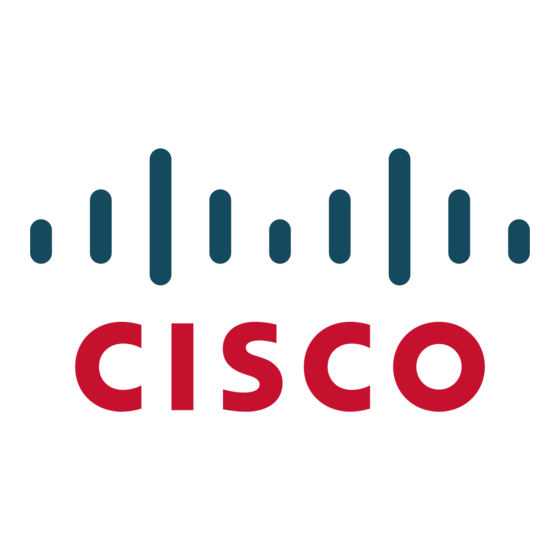Cisco 2960-24TT - Catalyst Switch Технічний паспорт - Сторінка 6
Переглянути онлайн або завантажити pdf Технічний паспорт для Перемикач Cisco 2960-24TT - Catalyst Switch. Cisco 2960-24TT - Catalyst Switch 16 сторінок. Cisco catalyst 2960-24tc: specifications
Також для Cisco 2960-24TT - Catalyst Switch: Технічний паспорт (11 сторінок), Інформаційний бюлетень про продукцію (5 сторінок), Брошура та технічні характеристики (10 сторінок), Технічний паспорт (15 сторінок)

Feature
®
Integrated Cisco IOS
Software Features for
Bandwidth Optimization
QoS AND CONTROL
Advanced QoS
Granular Rate Limiting
SECURITY
Networkwide Security
Features
Important notices, privacy statements, and trademarks of Cisco Systems, Inc. can be found on cisco.com.
Benefit
•
Per-port broadcast, multicast, and storm control prevents faulty end stations from degrading overall systems
performance.
•
IEEE 802.1d Spanning Tree Protocol support for redundant backbone connections and loop-free networks
simplifies network configuration and improves fault tolerance.
•
PVST+ allows for Layer 2 load sharing on redundant links to efficiently use the extra capacity inherent in
a redundant design.
•
IEEE 802.1s Multiple Spanning Tree Protocol allows a spanning-tree instance per VLAN, enabling Layer 2 load
sharing on redundant links.
•
Egress committed rate (ECR) guarantee provides load balancing and redundancy.
•
Local Proxy Address Resolution Protocol (ARP) works in conjunction with Private VLAN Edge to minimize
broadcasts and maximize available bandwidth.
•
VLAN1 minimization allows VLAN1 to be disabled on any individual VLAN trunk link.
•
VLAN Trunking Protocol (VTP) pruning limits bandwidth consumption on VTP trunks by flooding broadcast
traffic only on trunk links required to reach the destination devices.
•
Internet Group Management Protocol (IGMP) version 3 snooping provides fast client joins and leaves of
multicast streams and limits bandwidth-intensive video traffic to only the requestors.
•
IGMP filtering provides multicast authentication by filtering out no subscribers and limits the number of
concurrent multicast streams available per port.
•
Multicast VLAN registration (MVR) continuously sends multicast streams in a multicast VLAN while isolating e
streams from subscriber VLANs for bandwidth and security reasons.
•
Standard 802.1p CoS and DSCP field classification are provided, using marking and reclassification on a per-
packet basis by source and destination IP address, source and destination MAC address, or Layer 4 TCP or
UDP port number.
•
Cisco control-plane and data-plane QoS ACLs on all ports help ensure proper marking on a per-packet basis.
•
Four egress queues per port enable differentiated management of up to four traffic types across the stack.
•
SRR scheduling ensures differential prioritization of packet flows by intelligently servicing the ingress and
egress queues.
•
Weighted tail drop (WTD) provides congestion avoidance at the ingress and egress queues before a disruption
occurs.
•
Strict priority queuing guarantees that the highest-priority packets are serviced ahead of all other traffic.
•
There is no performance penalty for highly granular QoS functions.
•
The Cisco CIR function guarantees bandwidth in increments as small as 1 Mbps.
•
Rate limiting is provided based on source and destination IP address, source and destination MAC address,
Layer 4 TCP and UDP information, or any combination of these fields, using QoS ACLs (IP ACLs or MAC
ACLs), class maps, and policy maps.
•
Asynchronous data flows upstream and downstream from the end station or on the uplink are easily managed
using ingress policing and egress shaping.
•
Up to 64 aggregate or individual polices are available per Fast Ethernet or Gigabit Ethernet port.
•
IEEE 802.1x allows dynamic, port-based security, providing user authentication.
•
IEEE 802.1x with VLAN assignment allows a dynamic VLAN assignment for a specific user regardless of where
the user is connected.
© 2005 Cisco Systems, Inc. All rights reserved.
Page 6 of 16
